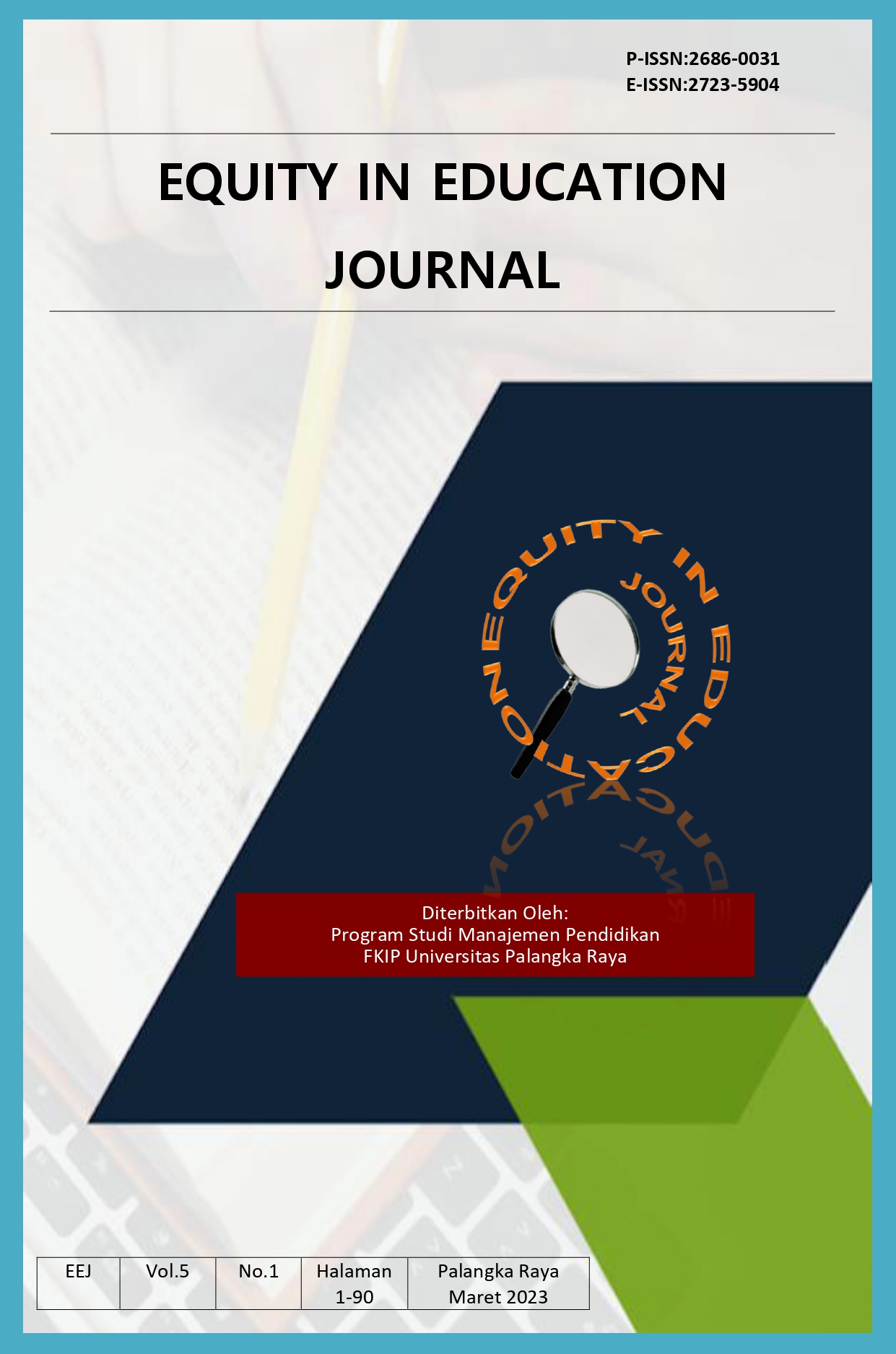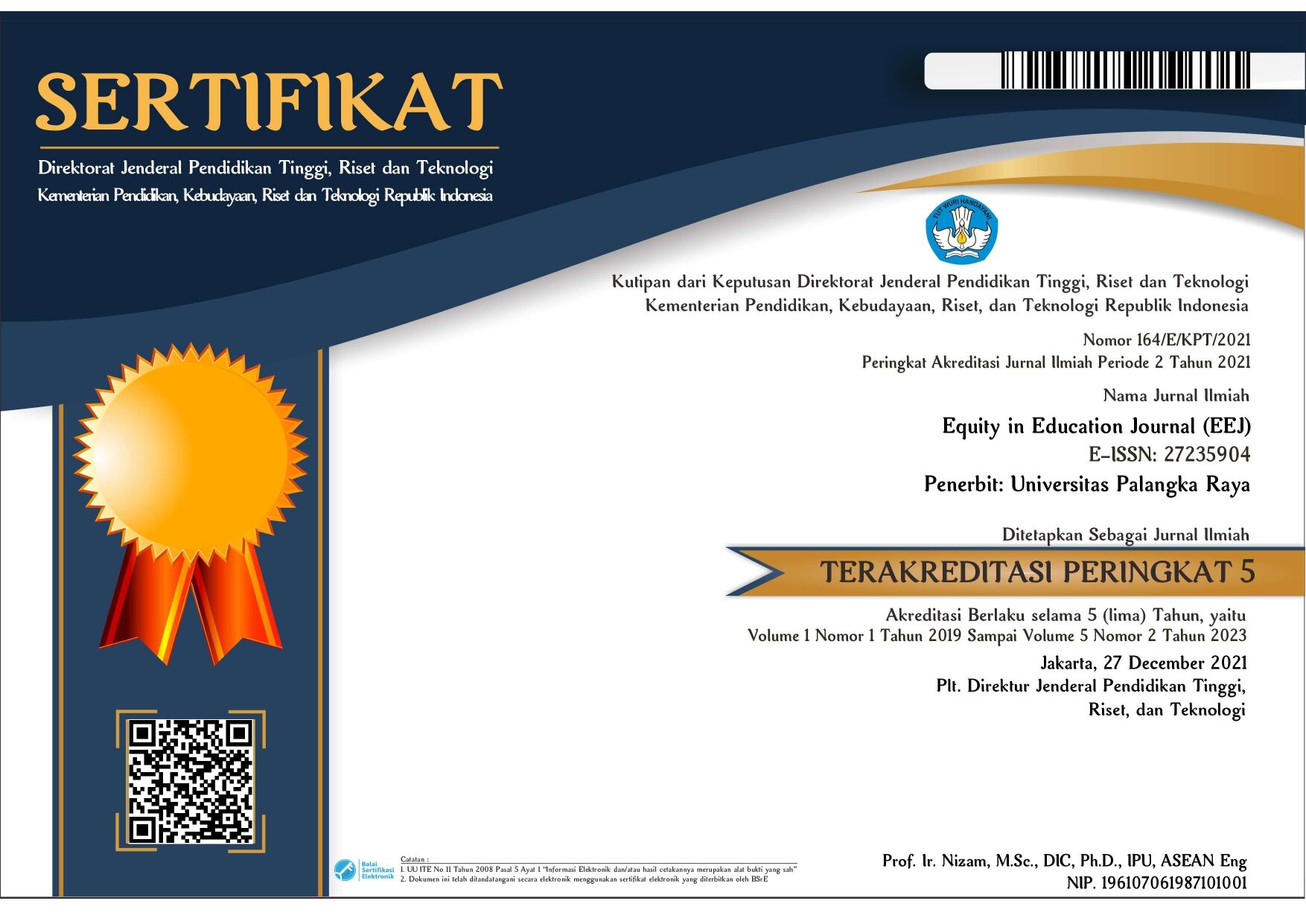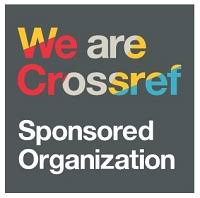KONSEP ORGANIZATIONAL INTELLIGENCE DALAM KEPEMIMPINAN PENDIDIKAN
DOI:
https://doi.org/10.37304/eej.v5i1.8255Keywords:
Organizational Intelligence, Kepemimpinan, Organisasi, Pendidikan.Abstract
This study aims to see and provide different views regarding organizational intelligence on educational leadership, namely the ability to direct organizations to move according to the development direction they want. Regarding how important the organizational intelligence of a leader is in contributing to the organization that their leads. This research uses the literature review method or literature study, with stages (1) objective; 2) inclusion criteria; 3) search strategy; (4) data collection; (5) quality of study; and (6) result synthesis data. This technique is carried out with the aim of disclosing various theories that are relevant to the problems being faced or researched as reference material in the discussion of research results. The results of this study showed that organizational intelligence is able to make a leader encourage his organization to move towards the target that has been set, namely people who have successfully built a clear self-image, because before followers are moved, they would want to recognize who their leader was, does the leader deserve to be a role model?.
Downloads
References
Affandi, Y., Darmuki, A., & Hariyadi, A. (2022). The Evalution of JIDI (Jigsaw Discovery) Learning Model in the Course of Qu’ran Tafsir. International Journal of Instruction, 15(1), 799-820.
Astuti, A. R. T. (2019). Manajemen Organisasi: Teori dan Kasus. Sulawesi: IAIN Parepare Nusantara Press.
Barricelli, B. R., Cassano, F., & Fogli, D. (2019). End-User Development, End-User Programming and End-User Software Engineering: A Systematic Mapping Study. Journal of Systems and Software, 149, 101-137. doi: https://doi.org/10.1016/j.jss.2018.11.041
Duryat, M. (2021). Kepemimpinan Pendidikan: Meneguhkan Legitimasi dalam Berkontestasi di Bidang Pendidikan. Bandung: Alfabeta.
Fatonah, I. (2017). Kepemimpinan Pendidikan. Tarbawiyah: Jurnal Ilmiah Pendidikan, 10(02), 109-125.
Hariyadi, A. (2014). Peran Pengawas dalam Menerapan Manajemen Mutu Terpadu di Sekolah. Jurnal Manajemen dan Penelitian Akuntansi, 7(2), 124-143.
Hariyadi, A. (2018). Model Peningkatan Kualitas Guru Berbasis Kinerja. Prosiding Universitas Muria Kudus.
Hariyadi, A. (2018). User of Smart Ladder Snake Media to Improve Stundent Learning Outcomes of IV Grade Students of State Elementary School I Doropayung Pancur Rembang. Refleksi Edukatika, 9(1), 107-111.
Hariyadi, A. (2020). Kepemimpinan Karismatik Kiai dalam Membangun Budaya Organisasi Pesantren. Equity in Education Journal (EEJ), 2(02). doi: https://doi.org/10.37304/eej.v2i2.1694
Hariyadi, A., Agus Darmuki. (2019). Prestasi dan Motivasi Belajar dengan Konsep Diri. Prosiding Seminar Nasional Penguatan Muatan Lokal Bahasa Daerah sebagai Pondasi Pendidikan Karakter Generasi Milenial. PGSD UMK 2019, 280-286.
Hariyadi, A., Fuadul, M., & Putri, A. (2021). Pembelajaran Kooperatif Berbantuan Media Audio Visual Pada Mata Kuliah Pendidikan Ilmu Pengetahuan Sosial. Refleksi Edukatika, 12(1), 110-11.
Hariyadi, A., Rustono., Pramono, S. E., & Yanto, H. (2018). Charismatic Leadership of Kiai in Developing an Organizational Culture of Islamic Boarding School. The Journal of Educational Development, 6(1), 44-53.
Hartina., Hariyadi, A., Tukiyo., & Romadhianti, R., & Seena, I. (2022). Strangthening Charateristics of Organizational Structures as An Effort to Improve Madrasah Employee Parformance. Al-Tanzim: Jurnal Manajemen Pendidikan Islam, 6((3), 880-893.
Hutagalung, D., Novitasari, D., Silitonga, N., Asbari, M., & Supiana, N. (2021). Membangun Inovasi Organisasi: Antara Kepemimpinan Transformasional dan Proses Manajemen Pengetahuan. Edukatif: Jurnal Ilmu Pendidikan, 3(6), 4568-4583. doi: https://doi.org/10.31004/edukatif.v3i6.1522
Karimi, F. & Akbari, M. (2014). The Mediation Role of Organizational Intelligence in Relationship Between Organizational Learning Capability and Organizational Citizenship Behavior. International Journal of Scientific Management and Development, 3(4), 261-268.
Kithcenham, B. (2004). Procedures for Performing Systematic Reviews. Joint Technical Report. Retrived form https://www.inf.ufsc.br/~aldo.vw/kitchenham.pdf.
Masbullah, M., As, A., Mudzafaroh, N., Hariyadi, A., & Nurdiana, D. (2022). Implementasi Manajemen Keuangan Sekolah dalam Pemenuhan Sarana dan Prasarana Pendidikan. Al-Mada: Jurnal Agama, Sosial, dan Budaya, 6(1), 92-101. doi: https://doi.org/10.31538/almada.v6i1.2894
Mukhlasin, A. (2019). Kepemimpinan Pendidikan di Era Revolusi Industri 4.0. Jurnal Tawadhu, 3(1), 674-692.
Na, J., Sumintono, B., & Yan-Li, S. (2020). Principal’s Preparation and Professional Development Programs: Case Study in Henan Province, China. Malaysian Online Journal of Educational Management (MOJEM), 8(2), 19-31.
Nasution, W. N. (2015). Kepemimpinan Pendidikan di Sekolah. Jurnal Tarbiyah, 22(1), 66-86. do: http://dx.doi.org/10.30829/tar.v22i1.6
Peramesti, N. P. D. Y. & Kusmana, D. (2018). Kepemimpinan Ideal Pada Era Generasi Milenial. Jurnal Manajemen Pemerintahan, 10(1), 73-84. doi: https://doi.org/10.33701/jt.v10i1.413
Permendikbudristek Nomor 40 Tahun 2021 tentang Penugasan Guru sebagai Kepala Sekolah.
Permendiknas Nomor 13 Tahun 2017 tentang Standar Kepala Sekolah/Madrasah.
Philips, N., & Yip, G. S. (2020). Good Leadership Hinges on “Organizational Intelligence”. Harvard Business Review. Diterima dari https://hbr.org/2020/06/good-leadership-hinges-on-organizational-intelligence?utm_medium=email&utm_source=newsletter_daily&utm _cam paign=dailyalert_not_activesubs&deliveryName=DM84345.
Pohan, H. (2019). Kepemimpinan Di Era Milenial Ditinjau dari Aspek Komunikasi. Jurnal Komunikasi Islam dan Kehumasan (JKPI), 3(2), 156-174.
Purba, S., Cendana, W., Darmawati., Salamun., Kato, I., Hendra, J., Prijanto, J. H., Cecep, H., Karwanto., & Sianipar, P. (2021). Kepemimpinan Pendidikan. Medan: Yayasan Kita Menulis.
Santika, I. G. N. (2017). Kepala Sekolah dalam Konsep Kepemimpinan Pendidikan: Suatu Kajian Teoritis. Widya Accarya, 7(1).
Shofwani, S. A., & Hariyadi, A. (2019). Pengaruh Kompensasi, Motivasi Dan Disiplin Kerja Terhadap Kinerja Karyawan Universitas Muria Kudus. Jurnal STIE Semarang (Edisi Elektronik), 11(1), 52-65. doi: https://doi.org/10.33747/stiesmg.v11i1.338
Soebagio, P. (2018). Mengenal Kepemimpinan dan Model Kepemimpinan. Diterima dari https://www.djkn.kemenkeu.go.id/kanwil-jateng/baca-artikel/12708/Mengenal-Kepemimpinan-dan-Model-Kepemimpinan.html.
Supena, I., Darmuki, A., &Hariyadi, A. (2021). The Influence of 4C (Constructive, Critical, Creativity, Collaborative) Learning Model on Students’ Learning Outcomes. International Journal of Instruction, 14(3), 873-892. doi: https://doi.org/10.29333/iji.2021.14351a
Suprihatin, D., & Hariyadi, A. (2021). Peningkatan Kemampuan Menentukan Ide Pokok Melalui Model SAVI Berbasis Mind Mapping pada Siswa Sekolah Dasar. Jurnal Educatio FKIP UNMA, 7(4), 1384–1393. doi: https://doi.org/10.31949/educatio.v7i4.1468
Tohardi, A. (2002). Pemahaman Praktis Manajemen Sumber Daya Manusia. Bandung: Mandar Maju.
Downloads
Published
How to Cite
Issue
Section
License
Copyright (c) 2023 Windaryati, Sundani, Suryawati, Ahmad Hariyadi, Slamet Utomo

This work is licensed under a Creative Commons Attribution 4.0 International License.










